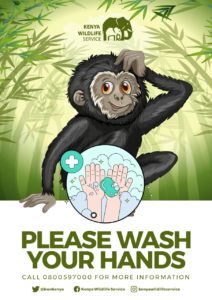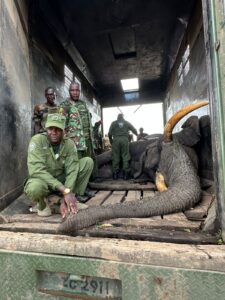The rapid and global spread of the COVID-19 virus has brought with it challenging future implications for conservation, particularly elephant conservation in Kenya. Mara Elephant Project (MEP) is deeply concerned about the pending socio-economic downturn that has been predicted and what that means for the communities we work so closely with to protect Kenya’s iconic elephants and the Mara ecosystem.
MEP would like to take this opportunity to update you about our response to the current situation during this devastating global pandemic. MEP is taking the COVID-19 situation very seriously and continues to reinforce and abide by all national and international guidelines to help reduce the spread of the virus and protect the health of MEP staff and the surrounding communities. At our headquarters in Lemek Conservancy, situated 10 km from the National Reserve, we have instituted an isolation policy amongst staff, set up hand washing stations and implemented a mandatory two-week stay at a quarantine camp for anyone who may have potentially been exposed. Continuing our efforts to support the communities, MEP has also provided extensive educational materials and training to all of our employees and encouraged them to be good examples of proper hand washing techniques, social distancing and protective techniques to minimize exposure.
Given the gravity and global scale of the pandemic, both national and global economists have predicted a dire economic downturn despite the tremendous efforts being taken across the board to secure economies. Apart from the acute threat of the virus to people’s health, the current economic downfall will seriously threaten wildlife and protected areas, which depend on tourism revenues. As economic hardships increase for local communities, the resurgence in elephant poaching and the illegal wildlife trade are likely consequences of the pandemic. MEP is closely monitoring the situation by keeping ranger teams in the field to continue their essential patrol duties but have isolated them deep within the Mau and Loita forests. We have already seen an increase in human-elephant conflict and habitat destruction, and we are doing our best to protect farmer’s crops by reacting to these reports. MEP also plans to continue operating the Karen Blixen Camp Trust 5Y-MEP helicopter to provide aerial monitoring, support key government partners and respond to emergencies.
“As a frontline conservation organization, Mara Elephant Project is reacting in real-time to the rapidly changing environment as a result of COVID-19. I commend our teams and all of our partners on the ground for their active continued work within the restrictions they have to comply with. MEP will remain steadfast in our commitment to the national and county government’s security and community support mechanisms. Never in any of our lives have we dealt with anything like what is happening now. Over and above our wildlife and habitat conservation work, I pledge that we will adapt to meet this, and future challenges and we will do our best to fight this pandemic together.”
Mara Elephant Project Chairman Colin Church
The COVID-19 pandemic has underscored how fragile humanity’s term on earth can become with abuse of the natural world either through habitat destruction or illegal wildlife trafficking. A current theory suggests pangolin meat bought from ‘wet markets’ in China may be the cause of the current pandemic. MEP’s wildlife protection activities in the Mara, although centered on elephants, extends to other species such as pangolins by providing boots on the ground protection and intelligence gathering. MEP is therefore in agreement with the approaches needed to eradicate the illegal wildlife trade to help prevent future outbreaks of zoonotic disease.
We see this crisis as an opportunity to positively reframe our relationship with the natural world and, when the pandemic is over, we believe we will be a stronger and more united community in the Mara.
With many salaams and best wishes to all,

MEP CEO Marc Goss
Helpful Resources

Kenya Wildlife Service released a video on hand washing protocol in rural areas.
The Kenyan Ministry of Health has a very informational FAQ page on their website with the latest guidelines and information.


